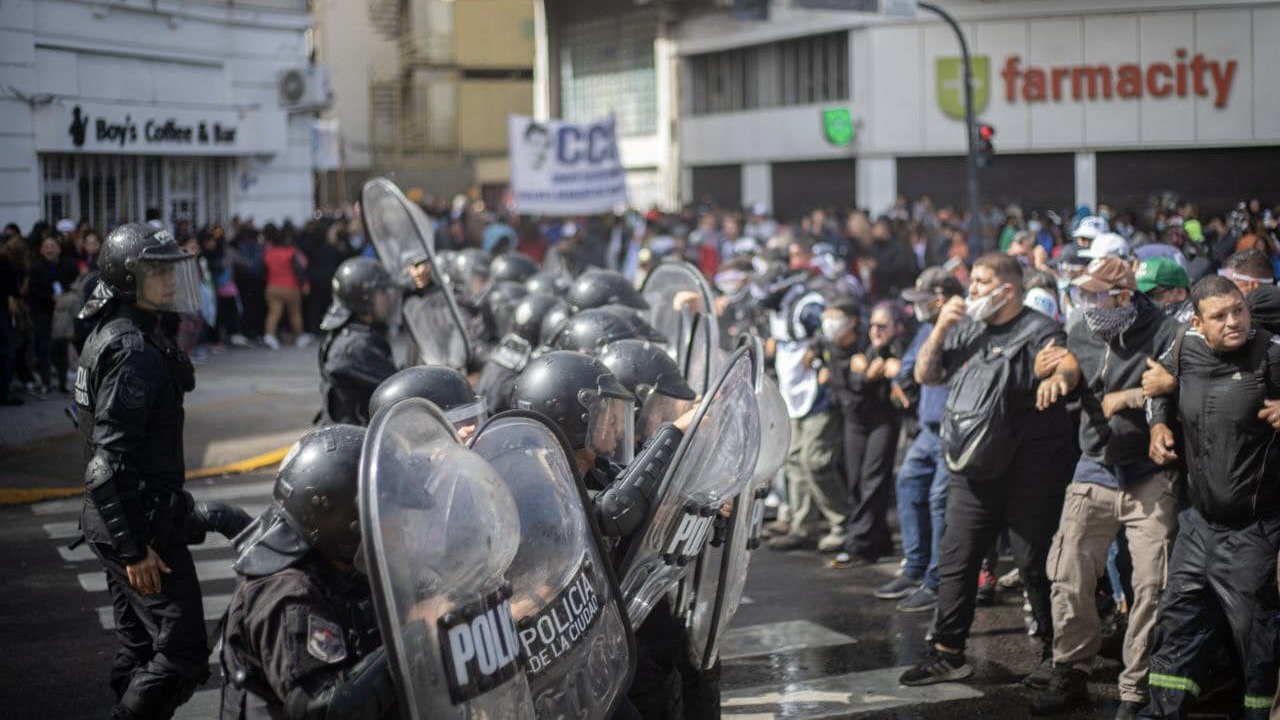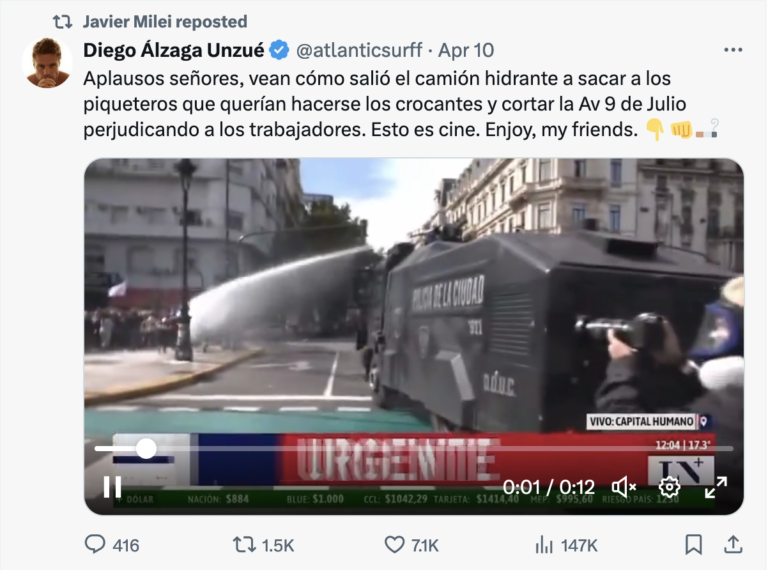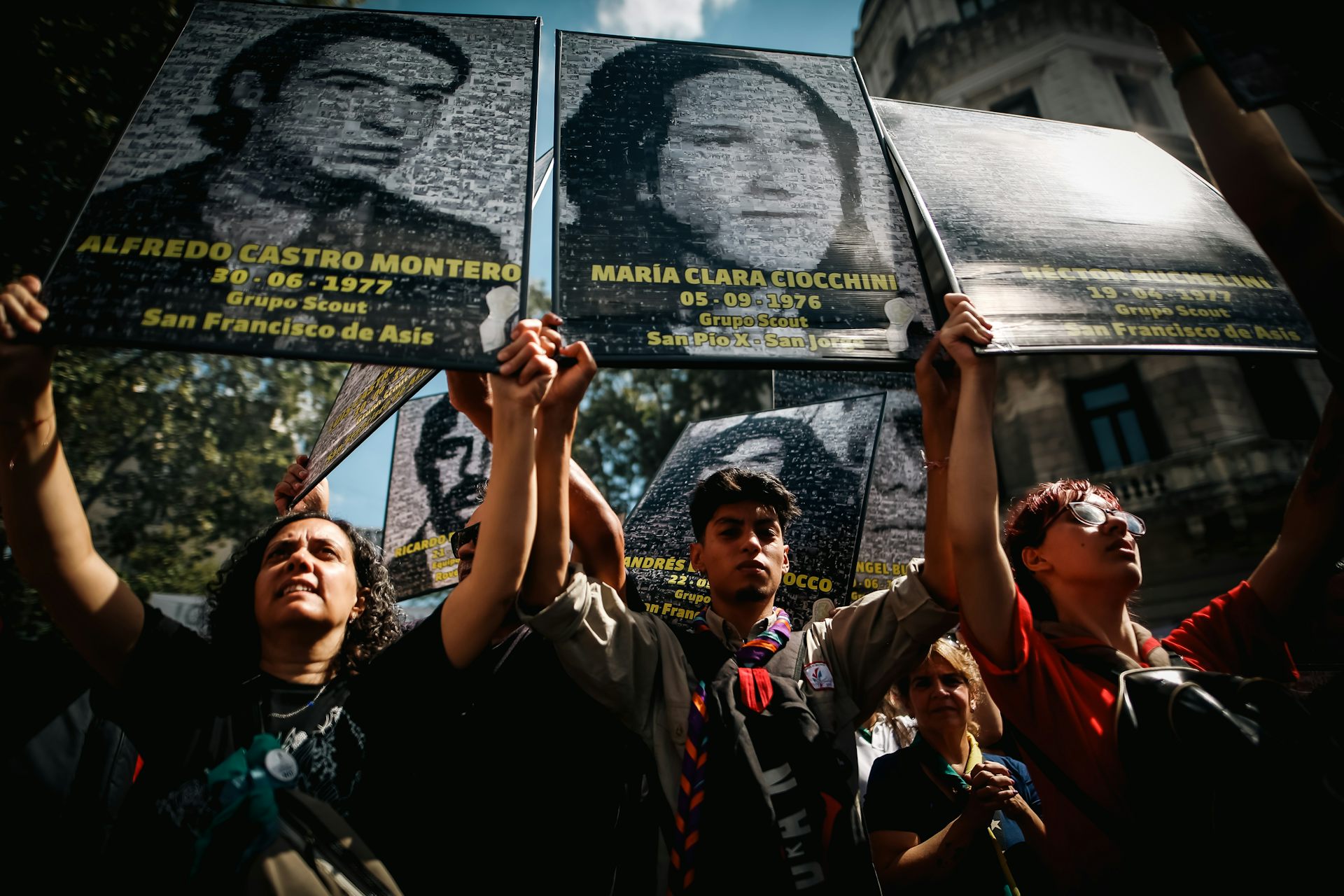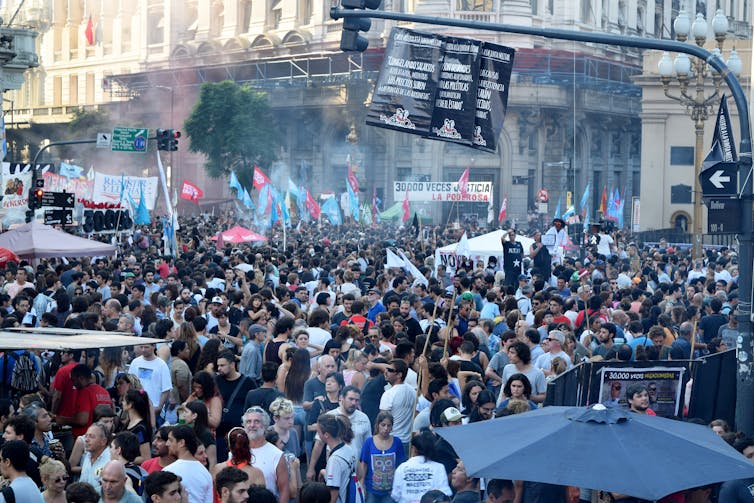Milei celebrates violent repression of thousands protesting hunger in Argentina
Original article by peoples dispatch republished under a Creative Commons Attribution-ShareAlike 4.0 (CC BY-SA) license.

Police cracked down on a protest of thousands of workers in the capital who demanded the government listen to its demands to send food to the community kitchens and address the growing hunger in the country
On Wednesday April 10, the Federal Police and the Police of the city of Buenos Aires violently evicted and repressed a peaceful demonstration on 9 de Julio Avenue in the center of the capital. The mobilization organized by the Union of Workers of the Popular Economy (UTEP) was one of many which took place in cities across the country to raise awareness to the critical situation faced by workers in the popular, or informal, economy in Argentina.
Organizations part of UTEP claim that the national government has suspended programs providing food to community kitchens and has also refused to dialogue with organizations who have repeatedly denounced the suspension and now, are unable to provide food to the thousands of families that they previously worked with. Many poor families across the country have also suffered from a freezing and arbitrary reduction of their “Social Complementary Salary”, a government program which provided supplementary economic aid to workers of the popular economy.
In Buenos Aires, thousands of protesters attempted to march to the Ministry of Human Capital when they were violently attacked by police with gas, water cannons. Over 10 were arrested in the brutal police repression and several were injured, including one protester who was dragged down the street and hit against the asphalt. Additionally, a journalist with the outlet Crónica TV driver was hit with a rubber bullet in the face.
The Ministry of Human Capital is a creation of the Milei government as a part of his promise to cut the majority of ministries and secretaries and create “super ministries”. It is the combination of the former Ministry of Labor, Ministry of Employment and Social Security, Ministry of Education, Ministry of Culture, and the Ministry of Social Development. This move, in addition to massively reducing the number of people working for the ministry, also saw severe cuts be made to the dozens of social programs run by those areas.
Milei, who was in Miami visiting with zionist and far-right US leaders such as Ben Shapiro, celebrated the repression of the protesters who were demanding government action against hunger amid unprecedented levels of poverty in the country. Milei reposted a publication from user Diego Álzaga Unzué on X which said: “Applause, gentlemen, see how the fire hydrant truck came out to remove the picketers who wanted to get dirty and cut off 9 de Julio Avenue, harming the workers. This is cinema. Enjoy, my friends.”

His Minister of Security Patricia Bullrich declared: “Law and order” in her post praising the “effective” crackdown on the mobilization through her “anti-picket protocol”.
Following the repressive operation, UTEP wrote in a statement: “We tried to create a channel of dialogue by all possible means, but once again the only response to the social and economic crisis is batons, gas and bullets. We denounce the violent actions of this Government, which the only thing it proposes for the people is planned misery. Our fight plan will continue to deepen to get food for our community kitchens, work and projects in our working class neighborhoods and social wages for the workers of the popular economy.”
The past week saw mass unrest across Argentina after over 10,000 public sector workers lost their jobs. As the “chainsaw” austerity of Milei continues alongside a growing military partnership with the United States, Argentina’s robust social organizations continue to be engaged in fierce struggle and opposition.
Original article by peoples dispatch republished under a Creative Commons Attribution-ShareAlike 4.0 (CC BY-SA) license.

